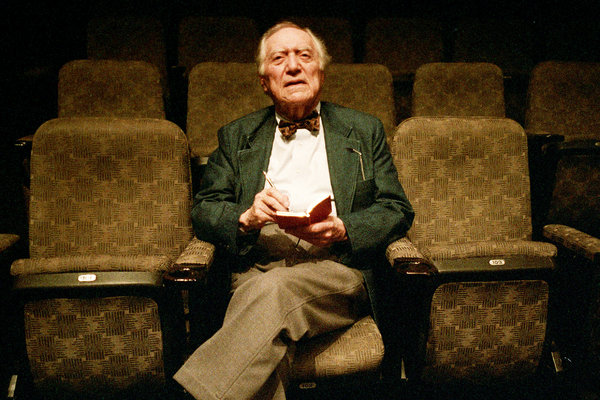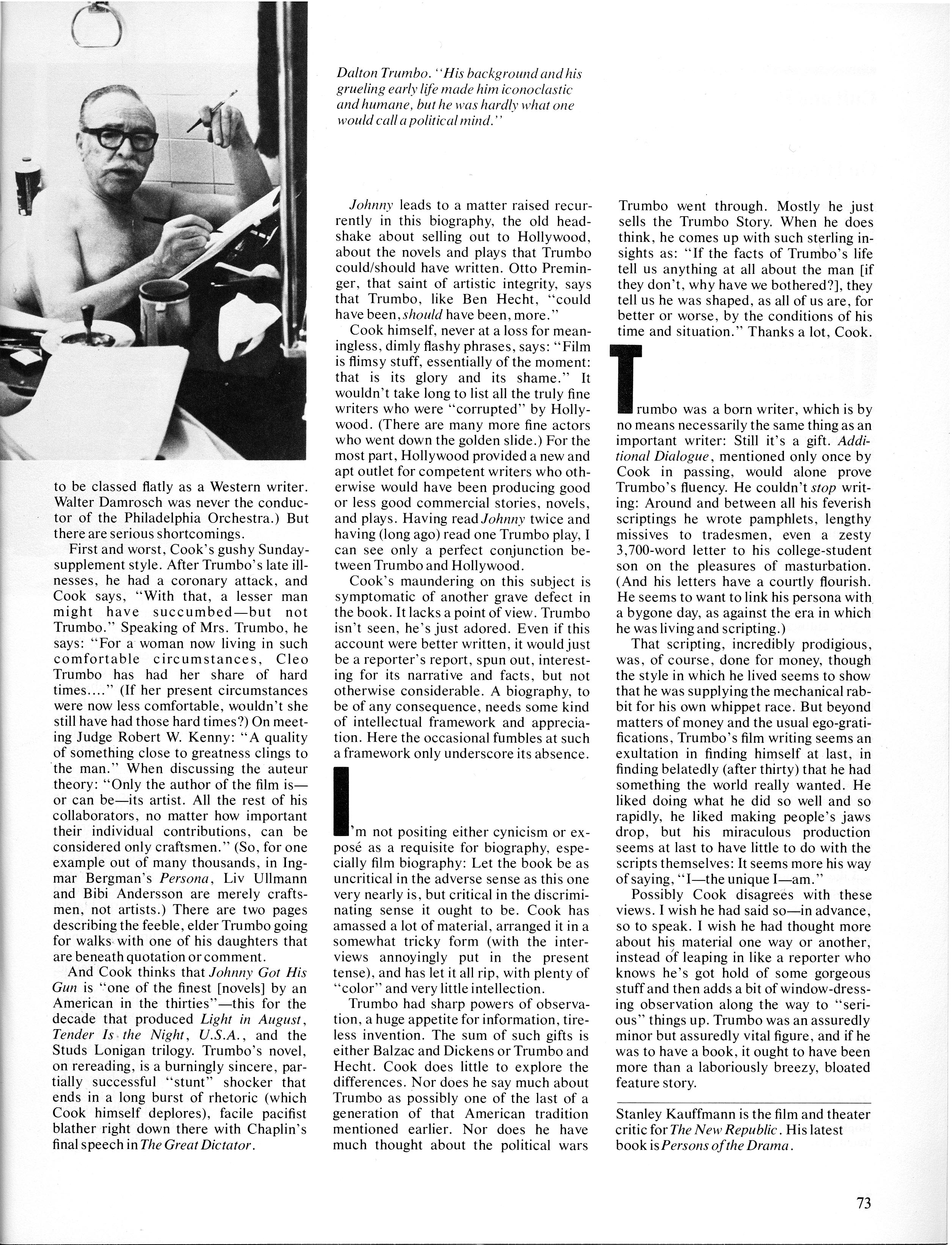
 When film critic and author Stanley Kauffman (1916-2013) died last October at the age of 97, obituary writers used words like "literate," "reflective" and "high-minded" to describe his work. Kauffman, while most closely associated with The New Republic, was a regular contributor to American Film™ in its first decade. In 1965, he described film as "a descendant of the theater and literature, certainly sui generis but not without ancestors or cousin, to be judged by its own unique standards which are yet analogous to those of other arts: a view that is pluralistic, aesthetic but not anti-science, contemporary but not unhistorical, and humanistic. " Kauffman was an early champion of Jane Fonda, who was recently named the 42nd recipient of AFI's Life Achievement Award. Kauffman filed this graceful, cogent book review of Bruce Cook's biography of blacklisted screenwriter Dalton Trumbo (SPARTACUS, JOHNNY GOT HIS GUN, PAPILLON) in the February 1977 issue. He doesn't spare Cook for what he considers the book's shortcomings. "A biography, to be of any consequence," he writes, "needs some kind of intellectual framework and appreciation." It's clear that Kauffman's own intellectual framework is rock solid. Not only does the reprinted article shed light on a fascinating subject and his biographer, it offers an excellent example of why Stanley Kauffman achieved renown as a critic and continues to be missed.
When film critic and author Stanley Kauffman (1916-2013) died last October at the age of 97, obituary writers used words like "literate," "reflective" and "high-minded" to describe his work. Kauffman, while most closely associated with The New Republic, was a regular contributor to American Film™ in its first decade. In 1965, he described film as "a descendant of the theater and literature, certainly sui generis but not without ancestors or cousin, to be judged by its own unique standards which are yet analogous to those of other arts: a view that is pluralistic, aesthetic but not anti-science, contemporary but not unhistorical, and humanistic. " Kauffman was an early champion of Jane Fonda, who was recently named the 42nd recipient of AFI's Life Achievement Award. Kauffman filed this graceful, cogent book review of Bruce Cook's biography of blacklisted screenwriter Dalton Trumbo (SPARTACUS, JOHNNY GOT HIS GUN, PAPILLON) in the February 1977 issue. He doesn't spare Cook for what he considers the book's shortcomings. "A biography, to be of any consequence," he writes, "needs some kind of intellectual framework and appreciation." It's clear that Kauffman's own intellectual framework is rock solid. Not only does the reprinted article shed light on a fascinating subject and his biographer, it offers an excellent example of why Stanley Kauffman achieved renown as a critic and continues to be missed.



